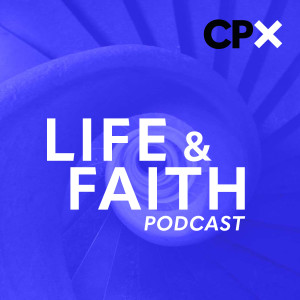
How the “invisible hand” of the market relies on the critical – and undervalued – work of care.
---
“We need to put care at the centre of the Australian economy.”
Before Sam Mostyn headed up the Women’s Economic Equality Taskforce, advising the Federal Government on ways to improve women’s economic equality, she gave a blistering address to the National Press Club about the long-ignored contribution of care – and the women who were mostly expected to do it – to national wellbeing.
Mostyn gave that address in late 2021 after months of lockdown, during which women did disproportionately more housework and childcare than men. Beyond individual households, feminised care industries full of “essential workers” – nurses, teachers, childcare workers, and aged care staff – also shouldered an extra load caring for vulnerable people through the pandemic.
Both kinds of work make up the care economy, or the paid and unpaid work of keeping people alive and well. It’s powered by women, and it’s typically taken for granted.
This episode of Life & Faith is timed to coincide with the 300th anniversary of the birth of Adam Smith, the Scottish philosopher, economist, and “father” of capitalism. Smith held that the “invisible hand” – a metaphor for a hands-off approach to buying and selling in the marketplace – would produce beneficial outcomes for all.
Not so fast, say care feminists. They argue that the “invisible hand” can do nothing without the “invisible heart”: the compassion and love that drives the care economy, and on which the market economy is entirely reliant, but which isn’t accounted for in measures of GDP.
In this episode, we sample two stories of care, highlighting its invisibility and yet the essential role it plays in people’s flourishing.
We speak to Andie Thorpe, a doctoral student who became her mother’s official carer when she was 10 years old. Andie was also named NSW Young Carer of the Year in 2014.
We also interview the journalist and social critic Anne Manne, who has been speaking and writing about the care economy long before it hit the mainstream.
Note: we had a technical difficulty in the Anne Manne interview that makes Justine periodically sound like a robot! Apologies for that.
-
Explore
Anne Manne’s Quarterly Essay: Love and Money – The Family and the Free Market
Anne Manne’s book Motherhood: How should we care for our families?
Anne Manne in The Monthly, writing about making women’s unpaid work count
Nancy Folbre’s book The Invisible Heart: Economics and Family Values
SBS profile on Andie Thorpe
Simon Smart writing in The Sydney Morning Herald about Robert Putnam’s work on social capital and faith communities
More Episodes
 2021-12-16
2021-12-16
 4.1k
4.1k
 2021-12-09
2021-12-09
 4.0k
4.0k
 2021-12-02
2021-12-02
 3.8k
3.8k
 2021-11-25
2021-11-25
 3.7k
3.7k
 2021-11-18
2021-11-18
 3.7k
3.7k
 2021-11-11
2021-11-11
 3.9k
3.9k
 2021-11-04
2021-11-04
 3.9k
3.9k
 2021-10-28
2021-10-28
 4.0k
4.0k
 2021-10-21
2021-10-21
 3.7k
3.7k
 2021-10-14
2021-10-14
 3.7k
3.7k
 2021-10-07
2021-10-07
 4.1k
4.1k
 2021-09-16
2021-09-16
 4.4k
4.4k
 2021-09-09
2021-09-09
 3.8k
3.8k
 2021-09-02
2021-09-02
 3.8k
3.8k
 2021-08-26
2021-08-26
 4.2k
4.2k
 2021-08-19
2021-08-19
 4.3k
4.3k
 2021-08-12
2021-08-12
 3.7k
3.7k
 2021-08-05
2021-08-05
 4.8k
4.8k
 2021-07-29
2021-07-29
 4.2k
4.2k
 2021-07-22
2021-07-22
 4.4k
4.4k
Create your
podcast in
minutes
- Full-featured podcast site
- Unlimited storage and bandwidth
- Comprehensive podcast stats
- Distribute to Apple Podcasts, Spotify, and more
- Make money with your podcast
It is Free
- Privacy Policy
- Cookie Policy
- Terms of Use
- Consent Preferences
- Copyright © 2015-2024 Podbean.com



